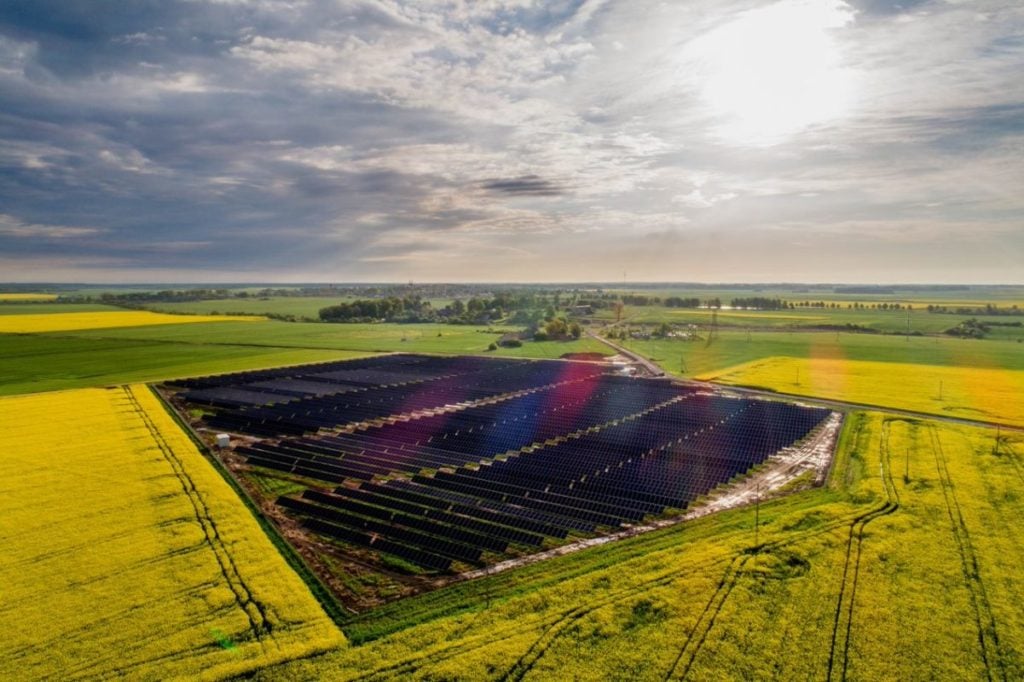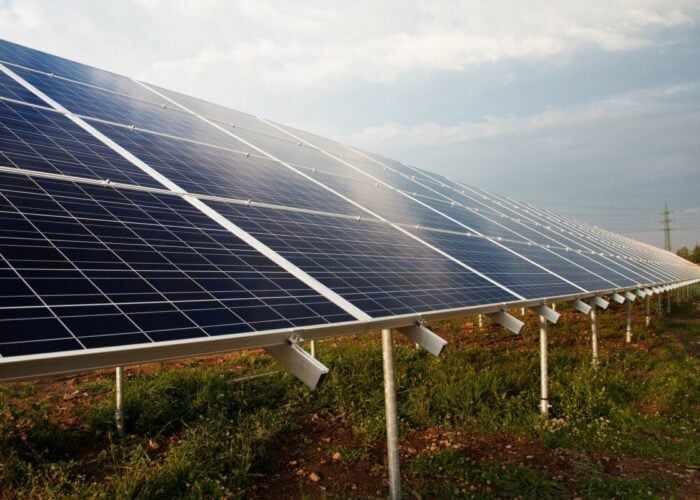
Lithuanian energy supplier Green Genius has obtained permits to invest €179 million into two new solar projects in the Baltic states, with a combined capacity of 198.8MW.
The projects consist of a 120.8MW facility near the city of Jekabpils in Latvia, for which the company will invest €109 million, and a 78MW project near Seduva in Lithuania, which will require €70 million for its construction. The company plans to begin construction on both plants “mid-2024”, and expects both to begin commercial operation in 2025.
Try Premium for just $1
- Full premium access for the first month at only $1
- Converts to an annual rate after 30 days unless cancelled
- Cancel anytime during the trial period
Premium Benefits
- Expert industry analysis and interviews
- Digital access to PV Tech Power journal
- Exclusive event discounts
Or get the full Premium subscription right away
Or continue reading this article for free
“The markets in the Baltic countries have reached a certain new stage of maturity when new opportunities to develop large-scale projects arise alongside the development of usual smaller-scale solar parks,” said Simonas Šileikis, head of solar business at Green Genius. “Each of the large-scale projects will be of great importance in decentralising the energy sources and strengthening the energy independence of the entire region.”
Lithuania’s solar sector is a small, but growing, industry, adding 313MW of new solar capacity in 2022. This figure is also encouraging compared to other power sources; Lithuania produced around 2GW of electricity from fossil fuels in 2022, around 40% of its total electricity supply, comparable to the 39% of its supply that derived from renewable energy sources.
However, its renewables mix remains heavily reliant on wind, with wind power accounting for 50% of its renewable energy capacity, compared to solar, which accounted for 35%. The country has ambitious plans to expand its renewables capacity further, with the 2023 draft of its updated National Energy and Climate Plan targeting a 55% renewable share of the total energy mix by 2030, greater than the 42.5% target for the EU as a whole.
Renewables make up a greater proportion of Latvia’s energy mix, accounting for 64% of the total energy mix in 2022, and as is the case in Lithuania, the contribution of solar is small. 82% of Latvian renewable power generation came from the hydropower and marine sectors in 2022, compared to just 3% from solar.
The solar sector is growing slowly, with the country adding 49MW of new solar capacity in 2022, and the work of private companies will be integral to realising these ambitions.
The news follows investments made into solar power in both Lithuania and Latvia by renewables developer European Energy, as interest in solar power in the Baltic states grows.






